Filter by
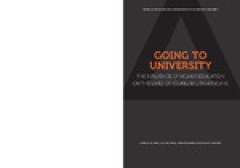
Going to university : the influence of higher education on the lives of young…
Around the world, more young people than ever before are attending university. Student numbers in South Africa have doubled since democracy and for many families, higher education is a route to a better future for their children. But alongside the overwhelming demand for higher education, questions about its purposes have intensified. Deliberations about the curriculum, culture and costing of p…
- Edition
- -
- ISBN/ISSN
- 9781928331698
- Collation
- ix, 164p. : ill.
- Series Title
- -
- Call Number
- 378.68 GOI g
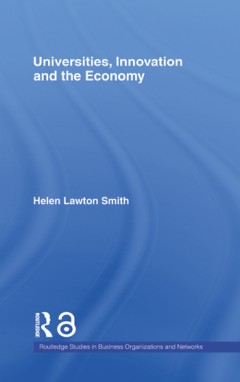
Universities, innovation and the economy
Universities are increasingly expected to be at the heart of networked structures contributing to society in meaningful and measurable ways through research, the teaching and development of experts, and knowledge innovation. While there is nothing new in universities’ links with industry, what is recent is their role as territorial actors. It is government policy in many countries that univer…
- Edition
- -
- ISBN/ISSN
- 9781134344185
- Collation
- xii, 265p. : ill.
- Series Title
- -
- Call Number
- 338.476200094 SMI u
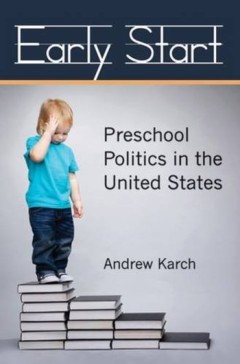
Early start : preschool politics in the United States
In the United States, preschool education is characterized by the dominance of a variegated private sector and patchy, uncoordinated oversight of the public sector. Tracing the history of the American debate over preschool education, Andrew Karch argues that the current state of decentralization and fragmentation is the consequence of a chain of reactions and counterreactions to policy decision…
- Edition
- -
- ISBN/ISSN
- 9780472118724
- Collation
- x, 274p. : ill.
- Series Title
- -
- Call Number
- 372.210973 KAR e
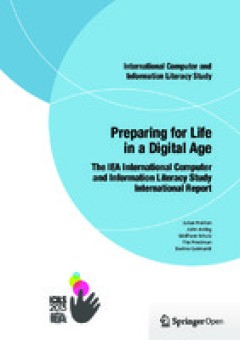
Preparing for life in a digital age : The IEA international computer and info…
Ability to use information and communication technologies (ICT) is an imperative for effective participation in today’s digital age. Schools worldwide are responding to the need to provide young people with that ability. But how effective are they in this regard? The IEA International Computer and Information Literacy Study (ICILS) responded to this question by studying the extent to which yo…
- Edition
- -
- ISBN/ISSN
- 9783319142227
- Collation
- 305p. : ill.
- Series Title
- -
- Call Number
- 371.334 PRE p
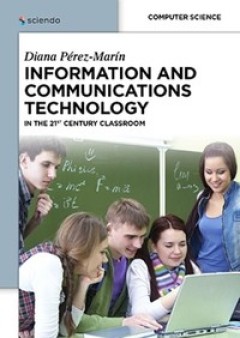
Information and communications technology : in the 21st century classroom
Are you a student who wants to become an effective teacher in the 21st century? Maybe you are a teacher already? Would you like to learn how to take advantage of educational technologies in order to achieve your pedagogic goals? Nowadays, technology is all around us, but how do we, as teachers, make the best use of it?Technology has entered the classroom and most teachers are not trained in usi…
- Edition
- -
- ISBN/ISSN
- 9783110401455
- Collation
- viii, 195p. : ill.
- Series Title
- -
- Call Number
- 371.33 MRE i
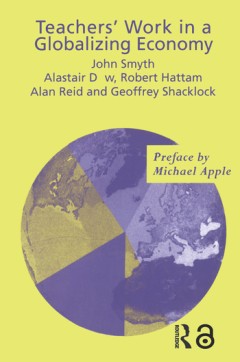
Teacher's work in a globalizing economy
Extended critical case studies provide a tangible working expression of the labour process of teaching, showing how teachers are simultaneously experiencing significant changes to their work, as well as responding in ways that actively shape these processes. For teachers and researchers, this book shows what processes are at work in the global economy which impact on, and sometimes control, the…
- Edition
- -
- ISBN/ISSN
- 9781135700256
- Collation
- xvi, 222p. : ill.
- Series Title
- -
- Call Number
- 371.1 SMY t
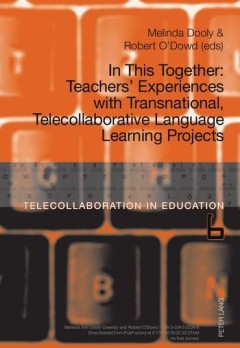
In this together : teachers' experiences with transnational, telecollaborativ…
This book provides a nexus between research and practice through teachers’ narratives of their experiences with telecollaboration. The book begins with a chapter outlining the pedagogical and theoretical underpinnings of telecollaboration (also known as Virtual Exchange), followed by eight chapters that explain telecollaborative project design, materials and activities as well as frank discus…
- Edition
- -
- ISBN/ISSN
- 9783034335010
- Collation
- 230p. : ill.
- Series Title
- -
- Call Number
- 418.00785678 IN i
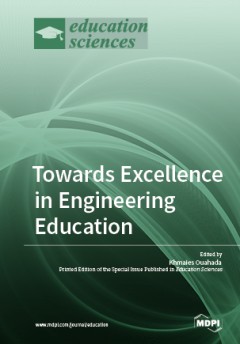
Towards excellence in engineering education
Acquiring knowledge is a life-long process; we constantly need to keep abreast of developments and progress in science and other disciplines. Embracing a scholarship of teaching and learning (SoTL) means practicing constant self-reflection, involving evaluation of the academic career and the ways in which strategies are designed to examine, interpret, and share learning about teaching. This pra…
- Edition
- -
- ISBN/ISSN
- 9783039212521
- Collation
- IX, 162 p.
- Series Title
- -
- Call Number
- 620.005 TOW t
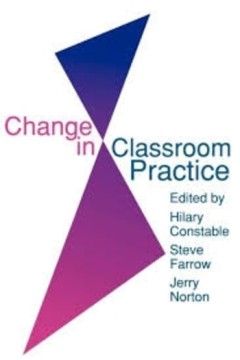
Change in classroom practice
Over the last ten years deliberate and determined efforts have been made to improve schooling. This book charts recent and current developments in the practical business of changing classroom practice to make schools more effective. It is devoted to detecting the effects on classroom practice of the efforts made to improve schools and classrooms, and to understanding how classroom practice chan…
- Edition
- -
- ISBN/ISSN
- 9781135721251
- Collation
- vi, 158p. : ill.
- Series Title
- -
- Call Number
- 371.10240941 CHA c
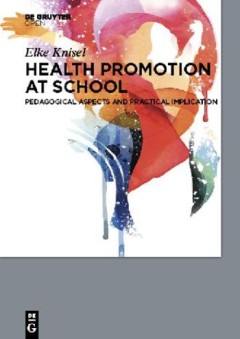
Health promotion at school : pedagogical aspects and practical implications
For decades the health of children and adolescents has been a topic of interest in all parts of Europe. And there is quite a consensus that schools are the most appropriate setting to promote health. Childhood and adolescence constitute key stages for learning and adopting a health-related and active lifestyle which includes physical activity and sports. The book describes a new approach to enh…
- Edition
- -
- ISBN/ISSN
- 9783110539646
- Collation
- ix, 152p. : ill.
- Series Title
- -
- Call Number
- 613.071094 HEA h
 Computer Science, Information & General Works
Computer Science, Information & General Works  Philosophy & Psychology
Philosophy & Psychology  Religion
Religion  Social Sciences
Social Sciences  Language
Language  Pure Science
Pure Science  Applied Sciences
Applied Sciences  Art & Recreation
Art & Recreation  Literature
Literature  History & Geography
History & Geography